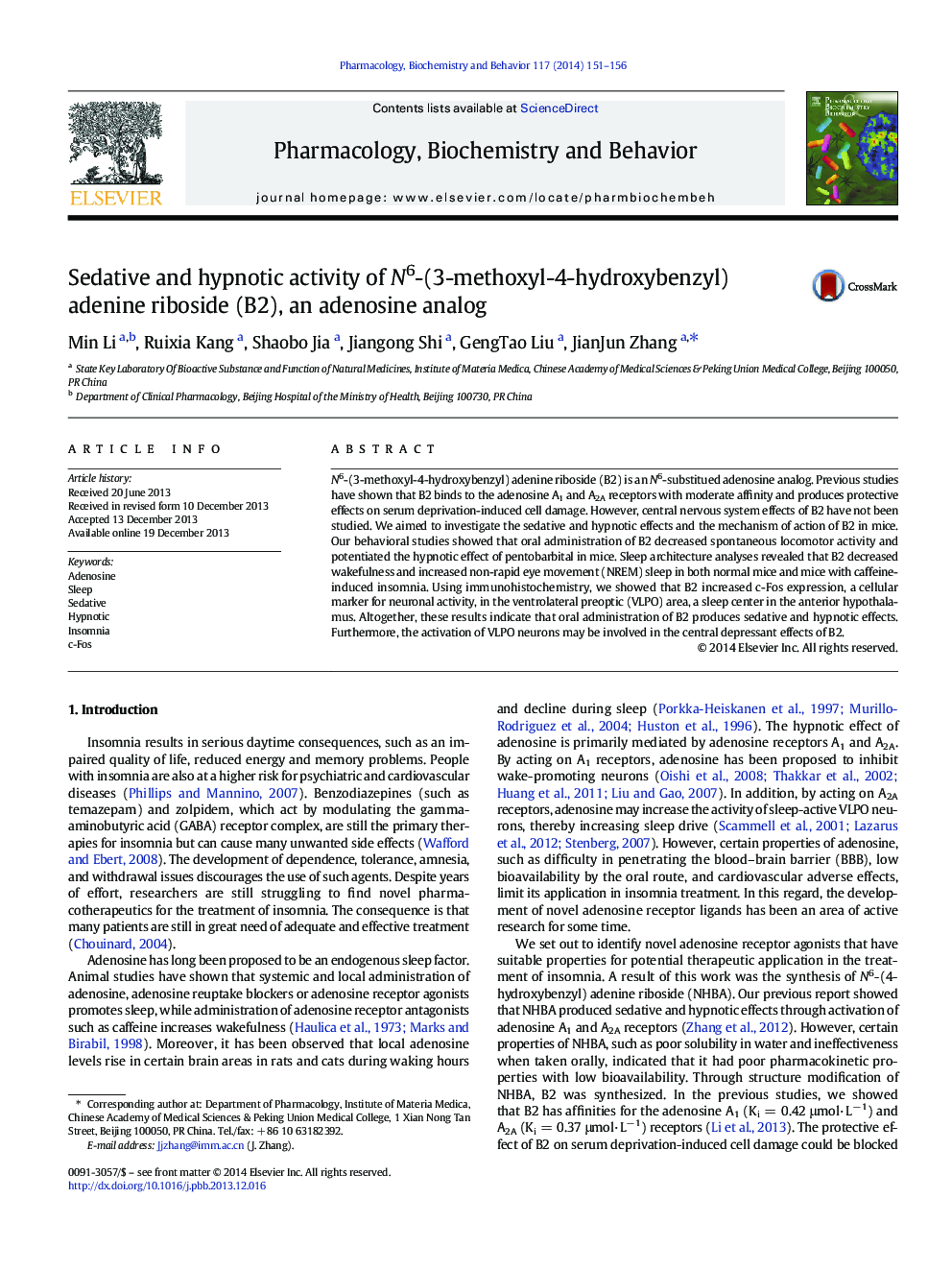| Article ID | Journal | Published Year | Pages | File Type |
|---|---|---|---|---|
| 8351512 | Pharmacology Biochemistry and Behavior | 2014 | 6 Pages |
Abstract
N6-(3-methoxyl-4-hydroxybenzyl) adenine riboside (B2) is an N6-substitued adenosine analog. Previous studies have shown that B2 binds to the adenosine A1 and A2A receptors with moderate affinity and produces protective effects on serum deprivation-induced cell damage. However, central nervous system effects of B2 have not been studied. We aimed to investigate the sedative and hypnotic effects and the mechanism of action of B2 in mice. Our behavioral studies showed that oral administration of B2 decreased spontaneous locomotor activity and potentiated the hypnotic effect of pentobarbital in mice. Sleep architecture analyses revealed that B2 decreased wakefulness and increased non-rapid eye movement (NREM) sleep in both normal mice and mice with caffeine-induced insomnia. Using immunohistochemistry, we showed that B2 increased c-Fos expression, a cellular marker for neuronal activity, in the ventrolateral preoptic (VLPO) area, a sleep center in the anterior hypothalamus. Altogether, these results indicate that oral administration of B2 produces sedative and hypnotic effects. Furthermore, the activation of VLPO neurons may be involved in the central depressant effects of B2.
Related Topics
Life Sciences
Biochemistry, Genetics and Molecular Biology
Biochemistry
Authors
Min Li, Ruixia Kang, Shaobo Jia, Jiangong Shi, GengTao Liu, JianJun Zhang,
